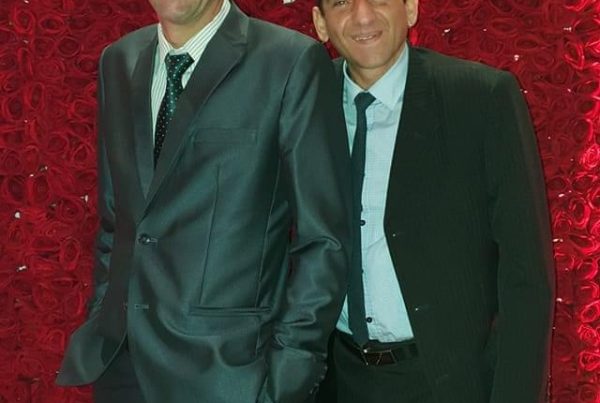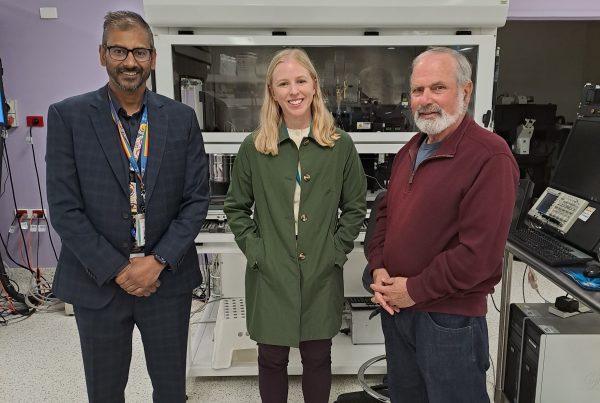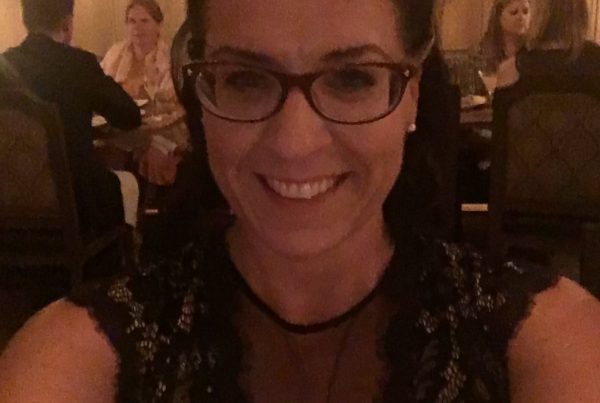How do you stay on track with your CF treatments? Spreadsheets and rewards are how Luke, a young man living with CF from Tasmania, motivates himself to reach his treatment and exercise goals.

Luke says his physiotherapy regime hasn’t always been consistent. However, by finding the strategies that suit him and a form of exercise that he enjoys, he has found a system that works.
“I have a bit of a rotation sort of thing I guess you could say. So, one day, I will go out on my bicycle and go for a ride. And then the next day, I’ll do hypertonic and Aerobika, or one of the various blowy things that exist. And then the next day it’s back on the bike, so it’s just sort of that alternate day type thing.”
It’s a simple strategy, but it’s one that works for this young man with CF. Luke hasn’t had a hospital admission for CF in 10 years and is relatively asymptomatic. It means that he often can’t or doesn’t draw motivation from an effective physio session, as he isn’t able to see any immediate benefits, although he knows there are long term health bonuses. Instead, he motivates himself by setting small goals and rewarding himself when he reaches them.
“In the last year or so, I’ve gotten into cycling… So that’s not really too much of a chore, at least to do that. And along the way, I’ve set myself some key points to get to.”
“So, when I first started riding, I thought well I’ll ride this, you know, X amount of kilometers, and then I’ll get myself like a new set of tyres or whatever. And… more kilometers up, I’ll get myself a new pair of shoes or a better pair than what I already had sort of thing. So, I’ve set myself some markers along the way.”
Since taking up cycling, Luke is now averaging 70-100 kilometres every week. He says the strategy of setting small goals and challenges has been vital to maintain motivation.
“For the early stages, that was sort of a way to sort of keep going a little bit. And then I’ve also got like a bigger goal, as to once I reach X amount of kilometers on my current bike, I’m going to look at getting a new one. So, I suppose, in regards to that part of it, setting little sort of challenges and goals and things to sort of keep yourself on track [keeps me motivated].”
”“I have a bit of a rotation sort of thing I guess you could say. So, one day, I will go out on my bicycle and go for a ride. And then the next day, I'll do hypertonic and Aerobika, or one of the various blowy things that exist. And then the next day it's back on the bike, so it's just sort of that alternate day type thing."
Besides setting small goals and challenges to keep him on track and motivated, Luke is a fan of using spreadsheets to see how he is progressing. The spreadsheets are also useful to share with his physio.
“The spreadsheet has got—it’ll have the week on it and then it’s got something like, the amount of kilometers I’ve done in the week.
“And then I’ve also got a little box that tells me what my average for the year has been… and then what I will, if I keep doing that distance, then how many I will do for the whole year.”
While today Luke may be racking up the kilometres every week, he started modestly, riding his bike around his suburb.
“One of the first times I went for a ride I went maybe two-and-a-half or three kilometers, like not far at all. And when I got off, it was like I couldn’t stand up sort of situation. And I thought surely riding a bike, it’s not that strenuous.”
“But that progressed… so I used to ride a particular loop. And then I’d do that every alternate day, and then once that sort of say 5k loop or whatever got to seem easy or I could look at, because I record of course my journeys, so I could look and go, well, I’ve done that quicker.”
“The times it’s taking me to do that, it’s getting less. And also, when I’m finishing, I’m not feeling quite as worn out.”
“That then progressed, the length got a little bit longer. And then it was the same thing, I did that for a while, and then once that got, you know, I felt pretty much the same as what I did when I started or I was doing it quicker then that expanded again. So, I’ve sort of got to a point now where if I go for a ride, I want to do at least 30-ish kilometers. So starting off doing, you know, five or six, and then that got to a loop of about 10.”
“I mean, even when you’re running or if you’re walking or whatever, in regards to extending your route, I mean, if you, just say if you go around your block, and if that becomes easy, then you just go the next one over as well. And you can just extend your route like that.”
“That’s sort of all I did, you know, as I started like in my suburb and went around two blocks, right and then three blocks, and then that sort of then slowly extended into the next suburb over which now is like me going into the city and then back or on the other side of town and then back.”

While keeping motivated to get on the bike hasn’t been a challenge for Luke, finding the same motivation to do his treatment is harder. He uses some simple techniques to keep himself on track.
“I think it’s fair to say that, in the past I’ve been… not that consistent, I guess you could say, with you know, treatments and whatever else. So, a little while ago, I made just like a simple little calendar.
“And I’ve got that laminated. So, it’s just like, you know, Monday, Tuesday, Wednesday, and a little box. So, what I do is every time I do physio of some sort, I’ll just put a tick on it so I can look at that.”
“A piece of paper can’t really hold you accountable for not doing anything. But it’s more so to look at, at least of some sort of visual reminder that ‘Oh I haven’t done you know hypotonic on this day. Why not?’ And if there’s a particular reason why that hasn’t happened, I will write it on, in the little box.”
“So that has been handy as in like a visual reminder with things.”
This article was published in March 2022 as part of our collaboration with CFPhysio.
CFPhysio strives to deliver evidence-based education in CF physiotherapist management that is accessible to all. Their mission is to educate and empower healthcare workers (involved in the care of individuals with CF) and all those impacted by CF in physiotherapy. Visit CFPhysio to learn more.
If you would like to share your story, please contact us at support@cfcc.org.au. We’d love to hear from you and so would our readers.
The views, experiences or comments shared on this website are not medical advice and may not reflect opinions or beliefs of Cystic Fibrosis Community Care. Always seek the guidance of your doctor or other qualified health professional with any questions regarding your health.



